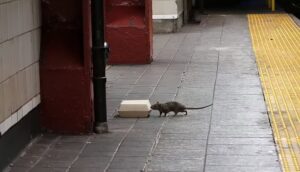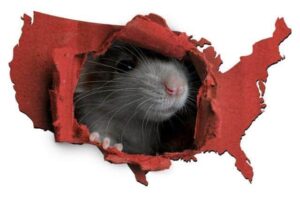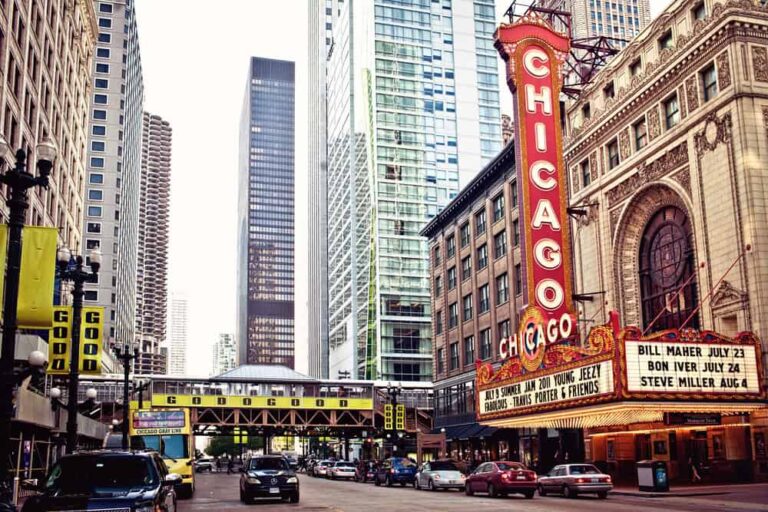The Windy City has earned an unwelcome title once again: For the 10th consecutive year, Chicago has been named the “rattiest city” in America by pest control company Orkin. Despite efforts to control its rodent population, Chicago’s unique infrastructure and environment have made it a hotspot for rats, outpacing other major cities across the country.
Orkin’s annual ranking, based on the number of new residential rodent treatments between September 2023 and August 2024, has placed Chicago at the top of the list every year since its inception. Los Angeles and New York City rounded out the top three, with both cities maintaining their presence among the most rodent-infested areas in the U.S. since 2017.
The city’s rodent problem stems largely from its urban layout, which creates the perfect environment for rats to thrive. According to Orkin, Chicago’s abundance of alleys provides hidden havens for rodents, allowing them to feast on food waste and find shelter beneath subway tracks and underground pipes. These dark, secluded areas allow the rodent population to grow rapidly if not consistently managed.
“Chicago’s infrastructure offers plenty of spaces for rats to hide and breed, particularly in its many alleys and underground areas,” said John Kane, Orkin National Accounts Entomologist. “When these hidden spaces are left unchecked, rodent populations can quickly multiply.”
Chicago may have topped the list, but rodent problems plague many U.S. cities. Los Angeles came in second, followed by New York City in third. San Francisco, Washington D.C., and Denver also featured in the top 10, highlighting a nationwide issue of urban rodent infestations. Of the 50 cities on Orkin’s list, New York state had the most entries, with five cities, including Albany, Buffalo, and Syracuse.
The data collected through Orkin’s residential rodent treatments indicates that as the weather cools, rats and mice seek warm shelters, making homes and businesses their primary targets.

Rats are more than just a nuisance. They pose significant health and safety risks, ranging from structural damage to the spread of disease. Rodents are notorious for chewing through walls, wiring, and pipes, which can lead to electrical fires and water damage. Additionally, they can spread diseases such as Leptospirosis, Salmonellosis, and Typhus, making them a serious public health concern.
Rodents’ constant chewing is a particular issue. Their teeth are strong enough to gnaw through steel garbage cans and even concrete, making it difficult to keep them out once they find a way in. “Rodents can cause a lot of structural problems for property owners,” said Kane. “They tend to chew through wiring, which poses an increased risk of fires.”
Property owners can take several steps to prevent and address rodent infestations before they become severe. Some common signs of rodent activity include droppings near food sources, scratching or scurrying noises (especially at night), gnaw marks on furniture and food packaging, and greasy trails left by rodents along baseboards and walls.

Chicago’s struggles with rodents date back decades. In 1994, the city made headlines after shutting down several restaurants for health code violations, prompting then-Mayor Richard M. Daley to famously quip, “If a rat is on your sandwich, you hope to know it before.” Since then, the city has continued to battle its rodent problem with varying levels of success. In 2021, a CBS investigation found a record-breaking 53,000 rat complaints by October, setting a new high for the city.
Founded in 1901, Atlanta-based Orkin has become a leader in pest control services, offering solutions for rodent, termite, and insect infestations across the globe. The company emphasizes the importance of addressing rodent issues quickly, especially in urban environments where conditions can rapidly worsen.
“We urge property owners to take rodent infestations seriously, especially as temperatures drop and rodents seek out warm places to nest,” said Kane. “By following preventive measures and calling in professionals when needed, we can help keep our cities cleaner and safer.”
As Chicago faces its 10th year as the nation’s rattiest city, local officials and residents continue to search for effective ways to combat the problem. With persistent efforts to manage waste, improve infrastructure, and educate the public, there is hope that the Windy City might one day shed this unwanted title. Until then, the battle against the city’s rodent population rages on.
